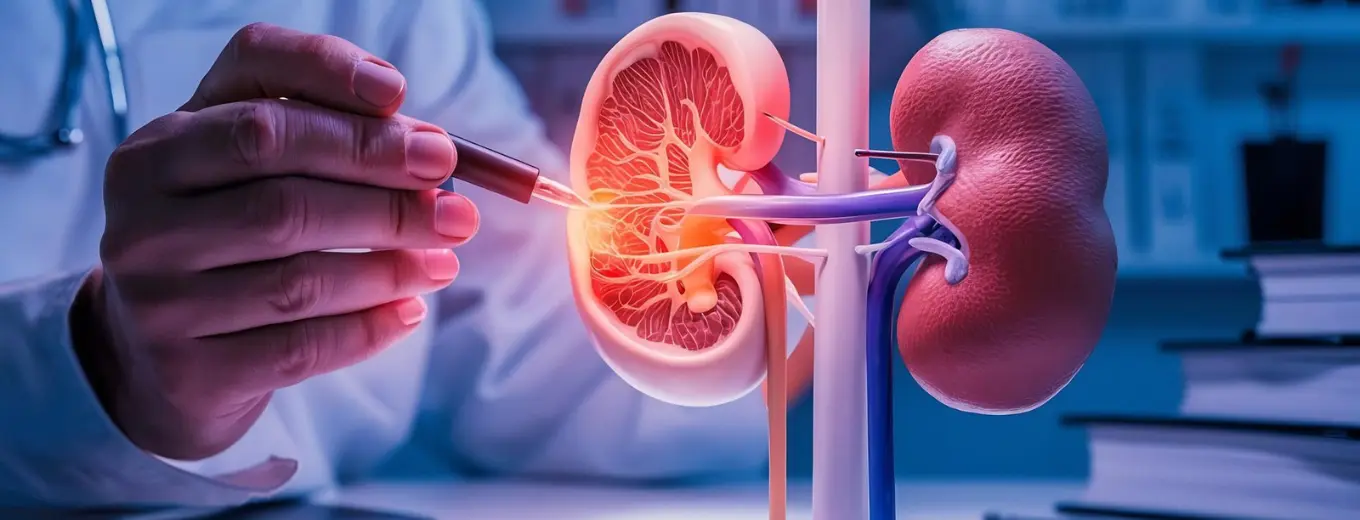Kidney Stones: Causes, Symptoms, Treatment, and Prevention
When it comes to managing the painful and often recurrent issue of kidney stones, Kidney Stone Treatment in Chennai stands out for its comprehensive approach and advanced technologies. Whether you’re battling intense pain or looking for preventive strategies, Chennai offers specialized urological and nephrology services designed to eliminate discomfort and restore your well-being.
With a reputation for excellence, the Best Kidney Stone Treatment in Chennai combines medical expertise with personalized care to ensure faster recovery. From diagnosis to non-invasive and surgical options, patients have access to some of the Top Kidney Stone Treatment in Chennai, including solutions tailored for those in Neelankarai and Egmore areas.
What Are Kidney Stones?
Kidney stones are solid masses formed from minerals and salts inside the kidneys. These stones can vary in size, ranging from a grain of sand to several centimeters, and are typically composed of calcium, oxalate, or uric acid. Their formation is usually triggered by dehydration, high mineral concentration in the urine, or certain metabolic disorders.
People experiencing these conditions often turn to Kidney Stone Treatment in Chennai for swift and expert intervention. Especially in areas like Egmore and Neelankarai, the demand for the Best Kidney Stone Treatment in Neelankarai and Best Kidney Stone Treatment in Egmore has grown, thanks to the availability of cutting-edge procedures and skilled specialists.
Causes and Risk Factors
Understanding the root causes of kidney stones is crucial for both treatment and prevention. Common contributing factors include:
- Dehydration: Insufficient water intake concentrates minerals in urine.
- High-oxalate or high-protein diets: Diets rich in spinach, nuts, or red meat can lead to stone formation.
- Genetic predisposition: Family history increases the likelihood.
- Obesity and metabolic disorders: These alter urine composition and raise risk.
- Medical conditions: Such as hyperparathyroidism or urinary tract infections.
Those who suffer from recurrent stones often seek out the Top Kidney Stone Treatment in Chennai, which offers diagnostics and individualized plans to address these risk factors. With expert care available, the Best Kidney Stone Treatment in Chennai ensures that not only are stones treated effectively, but future occurrences are minimized.
Symptoms and When to Seek Help
Recognizing symptoms early allows for timely intervention. Common indicators of kidney stones include:
- Sharp pain in the back or lower abdomen (renal colic)
- Burning sensation or pain during urination
- Cloudy or foul-smelling urine
- Blood in the urine (hematuria)
- Nausea and vomiting
- Frequent urge to urinate in small quantities
These symptoms should not be ignored. Immediate evaluation at a Kidney Stone Treatment in Chennai facility can prevent complications. Clinics offering the Best Kidney Stone Treatment in Egmore and Best Kidney Stone Treatment in Neelankarai specialize in rapid diagnosis and treatment, ensuring faster relief and fewer long-term risks.
Types of Kidney Stones and Diagnosis
Different stones require different treatments, which is why proper diagnosis is essential.
Types of Stones:
- Calcium Oxalate Stones – The most prevalent type.
- Struvite Stones – Linked to infections.
- Uric Acid Stones – Caused by acidic urine, often diet-related.
- Cystine Stones – Rare and hereditary.
Diagnostic Methods Include:
- Ultrasound and CT Scans: To locate and assess stone size.
- Urinalysis: To identify infection or crystal types.
- Blood Tests: To check calcium or uric acid levels.
With these tools, specialists delivering Kidney Stone Treatment in Chennai create custom care plans. Clinics offering the Best Kidney Stone Treatment in Chennai and the Top Kidney Stone Treatment in Chennai focus on reducing patient discomfort while preventing recurrence through accurate diagnosis.
Treatments Available in Chennai
Modern nephrology and urology centers in Chennai offer a variety of treatments based on the stone’s size, type, and location. Here’s a look at the most common options:
1. Medications
For smaller stones, oral medications help manage pain, reduce inflammation, and assist in stone passage. Medications that alter urine pH or dissolve uric acid stones are also used.
2. Extracorporeal Shock Wave Lithotripsy (ESWL)
This non-invasive procedure uses shock waves to break stones into passable fragments. It’s a preferred option in Best Kidney Stone Treatment in Egmore clinics due to its quick recovery and minimal complications.
3. Ureteroscopy (URS)
Ideal for mid-to-lower ureter stones, URS involves inserting a thin scope via the urethra to remove or laser-fragment stones. This is commonly performed in Top Kidney Stone Treatment in Chennai facilities.
4. Percutaneous Nephrolithotomy (PCNL)
Used for large or complex stones, PCNL is a minimally invasive surgery performed through a small incision in the back. Recovery is relatively fast, and outcomes are highly successful.
Each of these treatments is offered across Kidney Stone Treatment in Chennai centers, with special emphasis on personalized care in Neelankarai and Egmore through the Best Kidney Stone Treatment in Neelankarai and Best Kidney Stone Treatment in Egmore.
Kidney Stone Laser Treatment and Its Cost in Chennai
Laser treatment is one of the most advanced and efficient options for kidney stone removal. Here’s why it’s preferred:
- High Precision: Laser energy targets and pulverizes the stone without damaging surrounding tissues.
- Shorter Recovery: Patients can return to normal activities within a few days.
- Minimal Invasiveness: No major incisions needed.
Cost of Kidney Stone Laser Treatment in Chennai varies depending on stone size, hospital facilities, and the technology used. However, Chennai remains one of the most cost-effective destinations for this procedure, attracting patients seeking the Best Kidney Stone Treatment in Chennai at affordable rates.
If you’re in Neelankarai or Egmore, centers offering the Best Kidney Stone Treatment in Neelankarai and Best Kidney Stone Treatment in Egmore provide competitive pricing with exceptional service.
Preventing Kidney Stones: Long-Term Health Tips
Preventive strategies are essential, especially for those prone to recurrent stones. Here are key prevention tips:
- Stay Hydrated: Aim for at least 2.5 liters of water daily.
- Eat a Balanced Diet: Limit salt, reduce high-oxalate foods (like spinach and nuts), and avoid excess animal protein.
- Maintain Healthy Weight: Obesity increases stone risk.
- Monitor Calcium Intake: Don’t overdo calcium supplements unless advised.
Clinics delivering the Best Kidney Stone Treatment in Chennai also offer dietary and lifestyle counseling to ensure you stay stone-free. Especially in Egmore and Neelankarai, the Best Kidney Stone Treatment in Egmore and Best Kidney Stone Treatment in Neelankarai providers integrate preventive programs into their patient care models.
Why Chennai Is a Hub for Kidney Stone Treatment
What makes Kidney Stone Treatment in Chennai stand out is not just the technology, but the experienced specialists, fast-track care, and patient-focused service. Here’s what you can expect:
- Internationally trained urologists and nephrologists
- 24/7 emergency care for acute stone pain
- Tailored post-treatment guidance and prevention
- Multilingual support and comfort-focused facilities
Patients from across Tamil Nadu and even abroad choose Chennai for its reputation. In neighborhoods like Neelankarai and Egmore, the availability of the Best Kidney Stone Treatment in Neelankarai and Best Kidney Stone Treatment in Egmore has transformed these areas into trusted hubs for urological care.
Conclusion
When faced with the intense pain and disruption of kidney stones, swift and expert care is vital. With advanced technologies, highly skilled professionals, and a patient-first approach, Kidney Stone Treatment in Chennai provides some of the most effective and affordable care options available.
Whether you’re looking for surgical precision or non-invasive techniques, the Best Kidney Stone Treatment in Chennai has a solution tailored to your needs. With well-established clinics in Neelankarai and Egmore, you can confidently access the Top Kidney Stone Treatment in Chennai and experience comprehensive care at every stage—from diagnosis to long-term prevention.

